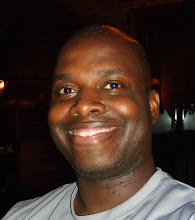Fritz Heider has been credited with illuminating a most fundamental human trait, called Balance theory. The power of the human mind is demonstrated in that you can convince yourself of anything. Indeed, you are motivated to create balance in your opinions about objects in the world around you. You form opinions about objects like people, places, your favorite novel, a style of car, your ability, and more. Objects are sometimes related. The challenge we must face together is that the relationships between the objects can cause you dissonance. A further challenge, you will typically resolve your dissonance in whichever way requires the least amount of effort. When faced with dissonance, Heider suggests that you will either:
a) Change your opinion of the original object
b) Change your opinion of the object being related, or
c) Deny that the relationship between objects exists.
Each of the options above is based on two fallacies. The first fallacy is that you have to make a decision as quickly as possible to regain balance using only the information that you currently have on hand. I offer to you that you must learn to tolerate ambiguity. You must seek knowledge that provides you with multiple views of objects and the relationships between them. The time it takes to seek out this new knowledge is not wasted time. Taking time to inform you could mean the difference between a sustainable balance that makes room for growth and an unsustainable balance that stifles growth.
The second fallacy is that the stress of dissonance is an enemy to health and wellbeing. You must put in the work required to decide the solution to dissonance that is best for you, and best for our collaboration. The stress brought about by the feeling of dissonance can be the motivation you need to consider new alternatives, seek new knowledge, and part with “easy” answers.
a) Change your opinion of the original object
b) Change your opinion of the object being related, or
c) Deny that the relationship between objects exists.
Each of the options above is based on two fallacies. The first fallacy is that you have to make a decision as quickly as possible to regain balance using only the information that you currently have on hand. I offer to you that you must learn to tolerate ambiguity. You must seek knowledge that provides you with multiple views of objects and the relationships between them. The time it takes to seek out this new knowledge is not wasted time. Taking time to inform you could mean the difference between a sustainable balance that makes room for growth and an unsustainable balance that stifles growth.
The second fallacy is that the stress of dissonance is an enemy to health and wellbeing. You must put in the work required to decide the solution to dissonance that is best for you, and best for our collaboration. The stress brought about by the feeling of dissonance can be the motivation you need to consider new alternatives, seek new knowledge, and part with “easy” answers.


No comments:
Post a Comment